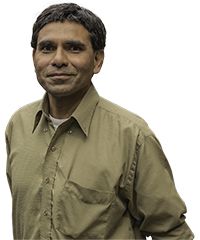Opinion
Mishra’s Mishmash: “No contribution” product of a dreadful recollection
This article is more than 7 years old.
Denmark’s most influential politician is Kristian Thulesen Dahl, the leader of Dansk Folkeparti (the Danish People’s Party), the second-largest party in the Danish Parliament. Without his party’s support the government would not have the majority to continue nor the mandate to pass the budget.
Takes the cake a bit
It has to be mentioned that 2017 happened to be the year when Inger Støjberg, the immigration and integration minister, celebrated Parliament passing the 50th tightening of the immigration law. So Denmark is, in reality, a country that can now boast having one of the tightest immigration laws in the whole of the European Union. The number of asylum-seekers has fallen to a historically low level compared to 2015, when Europe saw a surge in the number of migrants, who were primarily absorbed by Germany and Sweden.
As undesired as the surge in the number of asylum-seekers is for the survival of the present government, it is equally relevant for the present government to boast of how well the integration process is working by showing recent employment statistics. Everything seems to indicate that unemployment in Denmark is at a record low level. Denmark is in a unique situation compared to southern European countries, where unemployment, especially among young people, is very high.
But while a fair number relocate to Denmark from other EU countries, many also come from Asia and Africa, and in 2018 their number will add up to a fair percentage of the Danish population.
An indelible impression
This year, Berlingske newspaper’s ‘Dane of the Year 2017 Prize’ went to a young woman, Nadia Nadim, who came from Afghanistan as a 12-year-old girl. Today, she plays football for the Danish national team and English champions Manchester City, who she joined this month after agreeing a move in the autumn, scoring on her debut on Sunday.
In the field of writing, one cannot miss the fact that Nilofer Abbasis, another girl from Afghanistan living in Denmark, ended up writing the most read debate-article of 2017 – in the prominent Danish newspaper Politiken.
Meanwhile, at the top of the bestseller list in December was Sara Omar, a Kurdish poet and writer, whose book has been widely received with an overwhelmingly positive response.
These are just a few of the many immigrants who have left an indelible impression in 2017.
Would fail citizenship test
Yet, when Kristian Thulesen Dahl was asked to name five immigrants who have made a positive contribution in Denmark during the last year, he could not name one.
After the interviewer’s insistence and some thinking time on ‘Ugens Gæst’, a radio program on DR P1, he could eventually remember half a name: “Nadim”.
In Denmark, not being able to recall the correct name in a test can deprive you of citizenship. But there are no consequences for politicians when they blunder.

About
As a regular contributor to the Times of India, the country’s largest newspaper, Mishra is often sought-after by Danish media and academia to provide expertise on Asian-related matters, human rights issues and democratisation. He has spent half his life in India and the other half in Denmark and Sweden.










































